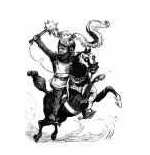
The 2010 Easter Offensive
OBJECTIVE: BENEDICT
Easter has, for many years, been the season of choice for attacks on the beliefs and practices of Catholics. We need think only of the years when, for example, the Jesus Seminar would choose the Easter season to publicize supposed “scholarly studies” casting doubt on the resurrection of Jesus or other Christian beliefs — which Time, Newsweek, The New York or Los Angeles Times, and the major TV networks would then gleefully and prominently feature as their particular contribution to the Holy Season. Unhappily, what all too often got churned up by the media in this fashion too easily passed for truth in the minds of too many people.
Easter 2010 was no different. But this time the media stories that first focused on the Catholic Church’s failure to deal with certain cases of clerical sexual abuse quickly escalated into a personalized media campaign against Pope Benedict XVI. At the basis of this campaign was the charge that the Catholic Church had failed to face up to and adequately deal with clerical sex abuse.
The clerical sex-abuse scandal first rocked the Church in the United States beginning in 2002. Measures taken by the U.S. bishops seem to have gotten the whole crisis under control stateside; but the scandal resurfaced in 2010 with new charges against priests and other Church personnel in Ireland, Germany, the Netherlands, Austria, and Switzerland. Many of these cases were decades old, just as had been the case when the crisis arose in the U.S.
Sex abuse is a grave sin in Church teaching and a crime in civil law, and so it was, of course, a legitimate subject for media attention. What was unusual about the 2010 Easter campaign against the Church, however, was the way in which Pope Benedict XVI got blamed personally for the whole new wave of charges. Allegedly, the Pope had failed to deal properly with certain cases of sexual abuse while serving as archbishop of Munich and later as prefect of the Congregation for the Doctrine of the Faith (CDF) in Rome.
You May Also Enjoy
Catholic apostolates and institutions must practice transparency and overcome the pitfalls of secrecy and elitism in order to avoid cultishness or a polarized, us-vs.-them mentality.
Throughout Ratzinger/Benedict XVI's theological career and pontificate, the Person of Jesus Christ has always been at the heart of his teaching.
The Legion has long been accused of obfuscating the truth about its methods and finances, and the life of its late leader.

